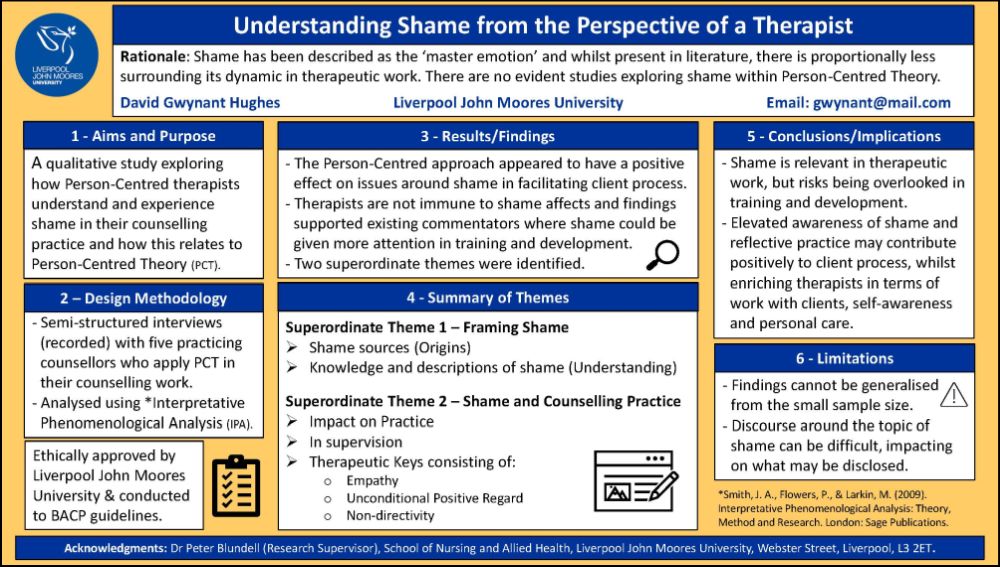
Aims or purpose
This qualitative study explored how person-centred therapists understand and experience shame in their counselling practice and considered how such experience related to person-centred theory (PCT). Shame has been described as the ‘master emotion’ and whilst present in current counselling and psychotherapy literature, there is proportionally less discussion within the dynamic of therapeutic work. There are no evident studies that explore shame in connection with the person-centred approach (PCA).
Design and methodology
Semi-structured interviews were conducted with five practising counsellors who used PCA in their counselling work, exploring their understanding and experience of shame. The interviews were recorded, transcribed and then analysed using Interpretative Phenomenological Analysis (IPA).
Ethical approval
The study was approved by Liverpool John Moores Research Ethics Panel and conducted adhering to BACP ethical research guidelines.
Results and findings
The person-centred approach appeared to have a positive effect on issues around shame within a therapeutic relationship facilitating client process, yet therapists are not immune from shame affects, whether their own or that of the client. Two superordinate themes were identified the first being ‘Framing shame’ with sub-themes of ‘Shame sources’ and ‘Knowledge and descriptions of shame’; the second superordinate theme being ‘Shame and counselling practice’ with sub-themes of ‘Impact on practice’, ‘Supervision’ and ‘Therapeutic Keys’. Whilst experience of personal shame was utilised constructively by therapists in how they helped others, the findings supported existing commentators suggesting the topic of shame could be given more attention in training and development.
Research limitations
The findings from this study cannot be generalised from the small sample size. Additionally, this research recognised the challenges for participants in talking about shame given it has the potential to generate this emotion, thereby impacting on what may be disclosed.
Conclusions and implications
Shame is a pertinent concept for person-centred therapists and their therapeutic work. However, there is a risk of this topic being overlooked in training and development, impacting upon practitioners regarding a relevant area of knowledge and understanding. Therefore, awareness of the nature of shame, combined with reflective practice, may contribute positively to client process whilst enriching therapists in terms of work with clients, their self-awareness and care.
Views expressed in this article are the views of the writer and not necessarily the views of BACP. Publication does not imply endorsement of the writer’s views. Reasonable care has been taken to avoid errors but no liability will be accepted for any errors that may occur.
